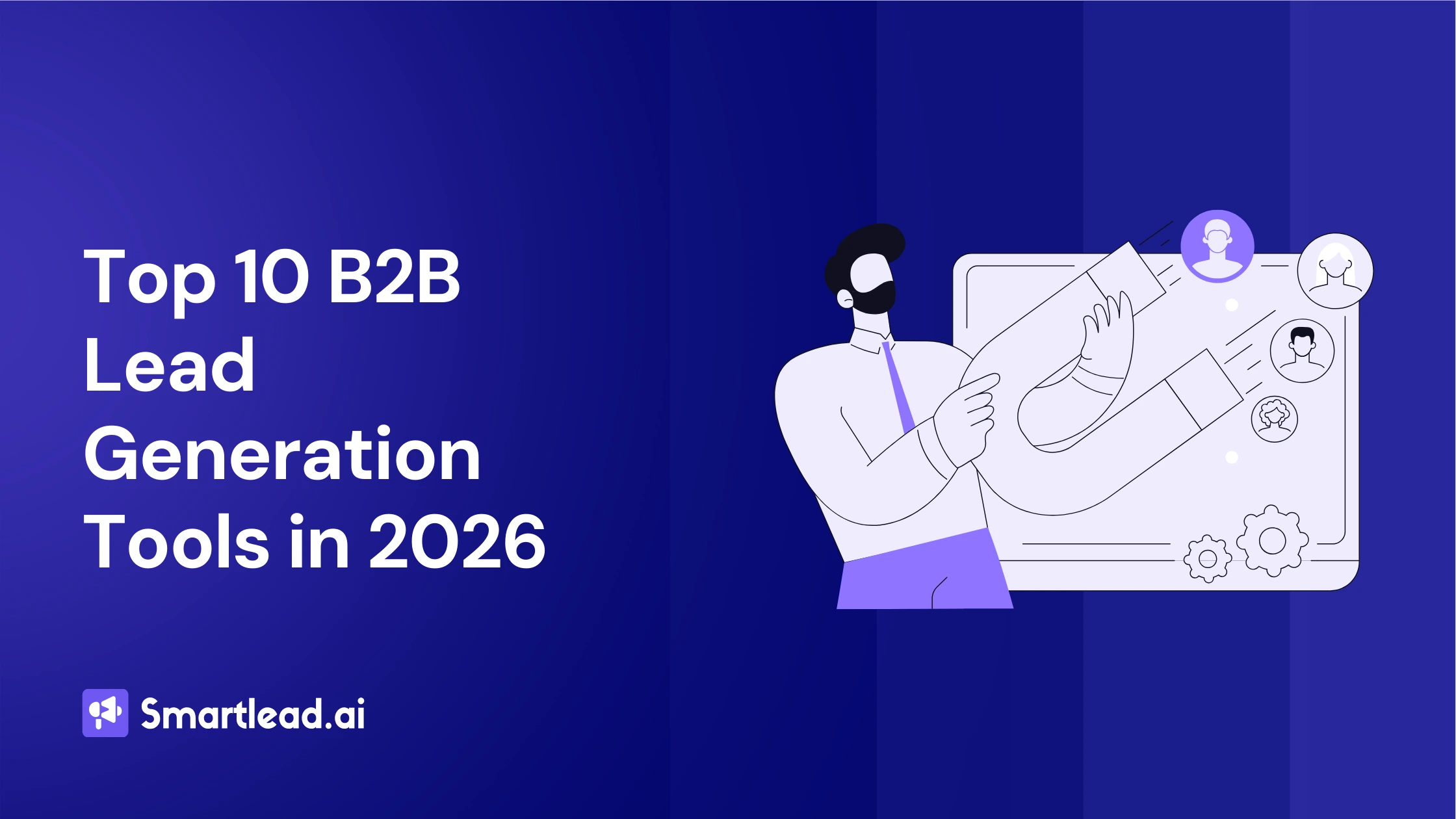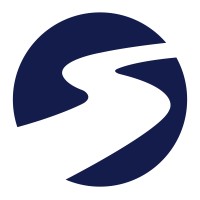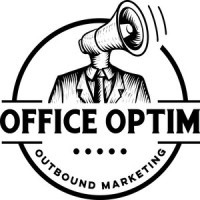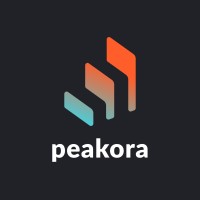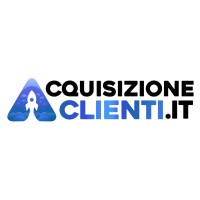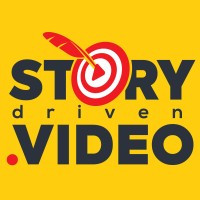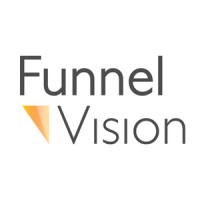Best AI Lead Generation Software in 2026: Boost Your Outreach & Sales
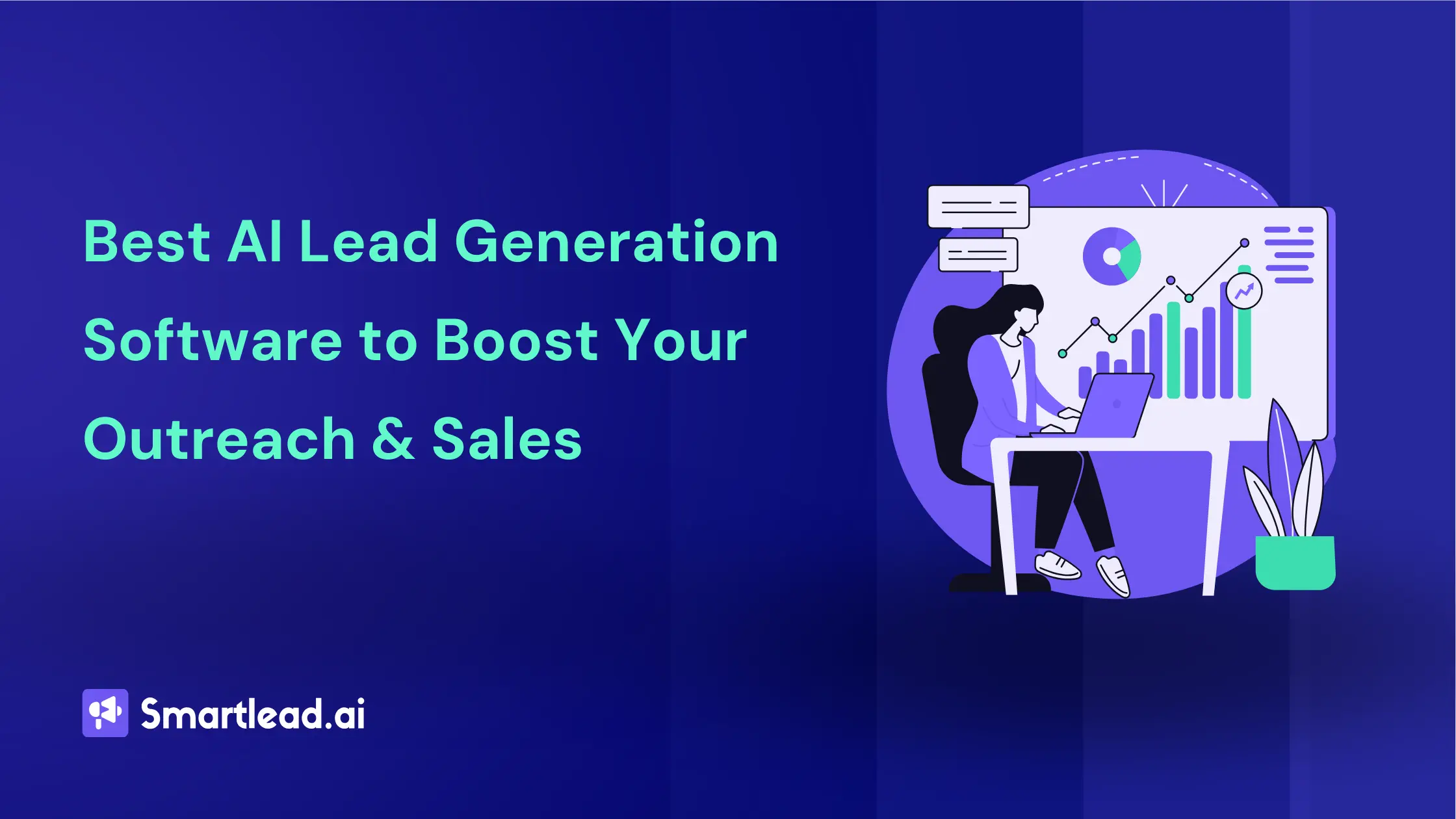
Heading
Finding high-quality leads is harder than ever, especially in the B2B space where there is lots of friction for deal closing. Traditional methods are slow, manual, and often ineffective. That’s where AI lead generation software changes the game.
These tools automate prospecting, personalize outreach, and optimize engagement using machine learning and big data. Instead of wasting hours on bad data and low-response campaigns, AI helps you target the right prospects at the right time—driving higher conversions with highly targeted outreach.
Whether you're in B2B sales, marketing, or an agency scaling outreach, the right AI tool can boost efficiency and results. In this guide, we’ll explore the best AI lead generation software in 2026. Keep reading on to read about the most effective strategies to generate leads with AI.
Top AI Lead Generation Software to Consider in 2026
With various AI tools available, choosing the right one for your business is crucial. Here’s a breakdown of some of the best AI-powered lead generation software that can enhance your sales process.
1. Smartlead: The Ultimate AI Lead Generation Software
Smartlead is one of the best AI lead generation software designed for businesses that want to scale outbound sales without compromising email deliverability. Unlike traditional email outreach tools, Smartlead lets users send thousands of emails daily across multiple mailboxes, ensuring high engagement rates while avoiding spam filters.
With SmartSenders, you can buy domains and ready-to-use emails from multiple mailbox providers and SMTP providers. Moreover, SmartDelivery ensures optimal inbox placement and domain reputation management. The platform's AI-powered warm-up engine gradually builds sender reputation, reducing bounce rates and keeping emails out of spam.
Smartlead also supports hyper-personalization at scale. Its AI-driven dynamic variables allow users to tailor subject lines and email content based on recipient data. Automated follow-ups keep leads engaged, improving response rates.
The detailed analytics dashboard offers insights into open rates, reply rates, and bounce rates, helping you to refine your outreach strategy. Smartlead also offers native integrations with CRMs like HubSpot, Salesforce, and Pipedrive for seamless lead tracking and sales pipeline management.
For agencies, Smartlead provides multi-sender rotation across unlimited mailboxes, allowing teams to scale outreach efforts without restrictions. Its multi-domain support prevents email blacklisting, making it ideal for businesses running multiple campaigns. Last but not the least, Smartlead also offers whitelabeling for pro plan customers and above.
Standout Features
- SmartSenders: With SmartSenders, users can purchase domains and pre-configured email addresses from multiple mailboxes (Gmail and Outlook) and SMTP providers. This eliminates the need for manual domain setup and ensures instant scalability for outbound campaigns.
- SmartDelivery: Smart Delivery provides detailed deliverability data, allowing you to track where your emails land—Inbox, Spam, or Promotions—so you can optimize campaigns with precision. It offers comprehensive email health reports, spam score analysis, and reputation tracking across 400+ blacklists, ensuring your emails maintain a strong sender reputation. With AI-powered email deliverability testing and real-time monitoring, Smart Delivery helps you fine-tune email content, identify problematic keywords, and replace low-performing mailboxes—boosting engagement and inbox placement.
- Automated Warmup: Smartlead's AI-driven warm-up engine gradually builds sender reputation, minimizing bounce rates and preventing emails from landing in spam folders. This automated process enhances email credibility, ensuring a higher inbox placement rate.
- Multi-Sender Rotation Across Unlimited Mailboxes: Unlike traditional tools with email sending limits, Smartlead offers multi-sender rotation, allowing users to distribute emails across unlimited mailboxes. This feature is particularly useful for agencies and sales teams running high-volume outreach campaigns.
- Hyper-Personalization and Triggers: Smartlead supports AI-driven personalization, enabling users to customize subject lines and email content dynamically based on recipient data. You can also set custom conditional triggers based on recipients’ behavior.
- Automated Follow-Ups to Boost Engagement: Smartlead automates follow-up sequences, ensuring that leads remain engaged throughout the sales cycle. Users can set up multi-step sequences that automatically send follow-ups based on recipient behavior, increasing conversion rates.
- Advanced Analytics: Smartlead provides a detailed analytics dashboard, offering insights into sent email count, open rates, positive reply rates, bounce rate, etc. This allows businesses to track campaign performance and optimize email strategies based on real-time data.
- Native CRM Integrations: Smartlead integrates directly with leading CRMs like HubSpot, Salesforce, and Pipedrive, making it easy to manage and track leads without switching platforms.
- Whitelabeling for Agencies and Enterprises: Smartlead offers whitelabeling options for Pro plan users and above, allowing agencies to brand the platform as their own for a professional, client-ready solution.
Pricing Plans
Smartlead offers a 14-day free trial for new signups. Besides, here are the pricing plans:
- Basic Plan: $39/month (2000 active leads, 6000 emails per month)
- Pro Plan: $139/month (30000 active leads, 150000 emails per month)
- Custom Plan: $174/month onwards (up to 12M active lead credits)

2. Clay
Clay is a next-gen AI lead generation platform built to automate research, personalize outreach, and scale outbound sales with ease. Instead of relying on generic email templates, Clay pulls real-time data from 200+ sources, including LinkedIn, company websites, and social media, to craft highly relevant messages.
Powered by GPT-4, it helps sales teams write natural, human-like outreach that resonates with prospects. The platform also automates lead qualification, so you can focus on the right prospects while Clay handles the heavy lifting.
Whether you're enriching data, writing personalized emails, or automating follow-ups, Clay simplifies the entire process.
Standout Features
- AI-Powered Personalization: Uses GPT-4 to generate custom, hyper-personalized emails beyond generic templates.
- Data Enrichment at Scale: Pulls information from 50+ providers to give you a complete view of each lead.
- Automated Lead Research: Finds key insights from blogs, social media, and LinkedIn to enhance outreach.
- Seamless CRM Integrations: Works with Salesforce, HubSpot, and 200+ other tools for smooth automation.
- Spam-Aware Messaging: AI helps optimize email copy for better deliverability and engagement rates.
Bonus: if you are using Smartlead as your cold email platform, you can fetch enriched lead data directly from Clay to Smartlead. Read more about it, here.
Pricing Plans
Clay offers a 14-day free Pro trial, no credit card required. Besides its free plan, the pricing starts at $149/month and goes up to a custom plan based on usage and features.
3. ZoomInfo
ZoomInfo is one of the most powerful AI-driven lead generation platforms, providing businesses with access to a massive B2B database. With over 321 million active professionals and 104 million companies in its system, ZoomInfo enables sales and marketing teams to identify, research, and connect with high-value prospects effortlessly.
The platform’s AI-powered SalesOS system refines lead searches based on Ideal Customer Profiles (ICP), buying signals, and real-time intent data. By automating prospecting, data enrichment, and outreach, ZoomInfo helps businesses streamline their sales pipeline and improve conversion rates.
Standout Features
- Comprehensive B2B Database: Provides accurate contact and company details with advanced search filters.
- Real-Time Intent Data: Tracks buyer behavior and purchasing signals, helping teams target the right leads at the right time.
- AI-Driven SalesOS Platform: Offers automated lead qualification, personalized insights, and industry benchmarks.
- CRM & Marketing Integrations: Seamlessly connects with Salesforce, HubSpot, and other sales tools to automate workflows.
- Automated Lead Research: AI-powered enrichment updates lead data dynamically, reducing manual work.
Pricing Plans
ZoomInfo uses a customized pricing model based on features, user licenses, and data usage. Pricing is available on request, and you can choose plans tailored to their sales and marketing needs.

4. Jasper AI
Jasper AI is a cutting-edge AI lead generation software that helps businesses streamline their sales and marketing efforts with automation. It leverages deep learning and predictive analytics to identify high-quality leads from data sources like Google, LinkedIn, and website traffic.
Jasper excels in automating repetitive tasks such as personalized email outreach, AI-driven social media content, and blog writing. Its integration with popular CRMs like HubSpot and Zoho allows businesses to enhance lead tracking and nurturing while improving engagement rates.
Standout Features
- AI-Powered Lead Generation & Content Creation: Automates cold emails, blog posts, ad copy, and social media content to engage leads effectively.
- Predictive Lead Scoring: Uses machine learning to analyze buyer intent and qualify leads based on real-time data.
- SEO Optimization: Ensures high search engine rankings by optimizing content with AI-driven keyword research.
- CRM & Marketing Tool Integration: Works seamlessly with HubSpot, Zoho, and LinkedIn, helping businesses centralize lead generation efforts.
- Automated Sales Copywriting & Personalization: Generates hyper-personalized messages to improve lead conversion.
Pricing Plans
- Creator Plan: $49 per month per seat
- Pro Plan: $69 per month per seat
- Business Plan: Custom pricing based on requirements
5. Seamless AI
Seamless AI is a powerful AI-driven sales intelligence platform designed to optimize lead generation by providing real-time access to millions of verified contacts. It leverages advanced machine learning to refine prospecting, ensuring sales teams connect with high-quality leads efficiently.
The platform allows users to filter prospects by industry, job title, company size, revenue, and even technologies used. Additionally, it enhances CRM data through automated data enrichment, helping businesses maintain accurate and up-to-date contact information.
With real-time search capabilities and a browser extension for LinkedIn and other web sources, Seamless.AI simplifies the process of discovering and engaging potential customers.
Standout Features
- Real-Time Contact & Company Search – Users can instantly find verified emails and phone numbers for potential leads using AI-powered search. The system continuously updates its database to ensure data accuracy and prevent outdated or incorrect contact details from being used.
- Data Enrichment – Automatically fills in missing or outdated contact details in CRM systems to ensure data accuracy. It integrates with platforms like Salesforce and HubSpot to enhance lead profiles with relevant insights and behavioral data.
- Buyer Intent Data – Identifies leads that are actively researching relevant topics and assigns them an intent score to prioritize outreach. This feature helps sales teams focus their efforts on leads most likely to convert, increasing efficiency and closing rates.
- Job Change Tracking – Notifies users when key prospects switch jobs, creating new sales opportunities. This ensures businesses don’t lose touch with decision-makers and allows them to re-engage past contacts in new roles.
- Chrome Extension – Extracts contact details directly from LinkedIn and other websites for seamless lead capture. The extension provides one-click access to prospecting data, eliminating the need for manual research and improving workflow speed.
Pricing Plans
Seamless AI offers multiple pricing tiers, including a 50-lead free trial and three pricing plans: Free, Pro, and Enterprise.

6. Breeze Prospecting Agent
Breeze Prospecting Agent is an AI tool developed by HubSpot that helps you automate outreach processes from beginning to end—from researching potential prospects and prioritizing them based on your ICP, to developing personalized outreach campaigns at scale.
Prospecting Agent researches the web to find relevant information across one or multiple target accounts, including job opening and recent company news.
The platform then compiles the gathered info into straightforward overviews and provides links to relevant resources so you can learn about them in more detail, and generates personalized outreach emails from there.
To put it differently, Breeze Prospecting Agent will save you loads of time you would’ve otherwise spent on manually researching and reaching out to each individual prospect.
Standout Features
- AI-powered personalization: Automatically personalizes outreach emails at scale using data from across the web and your CRM.
- Lead prioritization: Matches high-value prospects with your ideal customer profile for maximized results.
How AI Transforms Traditional Lead Generation
AI lead generation is rapidly replacing traditional methods by making the process faster, more accurate, and highly scalable. Businesses that adopt AI see a 40% improvement in lead quality and generate around 451% more leads through automation compared to those relying on manual processes.
AI vs. Traditional Lead Generation
Traditional lead generation involves manually collecting data, cold calling, and using intuition-based qualification. This approach is often inefficient, with sales teams spending a lot of their time on non-revenue-generating tasks. In contrast, AI-driven tools analyze thousands of data points in real time, ranking and scoring leads based on their likelihood to convert.
For example, AI algorithms assess factors such as online behavior, email interactions, and social media engagement to prioritize high-quality leads. This results in 29% more efficient lead management and ensures that sales teams focus on the most promising prospects.
Predictive Analytics and Lead Scoring
AI enhances lead qualification by predicting which leads are most likely to convert. Machine learning models evaluate historical data, engagement trends, and purchase patterns to refine scoring criteria dynamically. Businesses using AI-powered lead scoring see a conversion rate increase of up to 20% compared to manual methods.
Personalization at Scale
AI enables hyper-personalization, tailoring outreach messages based on browsing history, past interactions, and behavioral triggers. Personalized emails alone boost open rates by around 30%, and AI-driven automated workflows achieve 2x higher click-through rates than manual emails. AI tools also optimize messaging frequency, with research showing that sending one highly relevant email per week yields the best results.
Real-Time Lead Engagement
AI-driven systems adapt in real-time to lead behavior. If a prospect suddenly shows increased interest—such as visiting a pricing page or opening multiple emails—AI can automatically adjust lead scores and notify sales teams. AI chatbots further enhance engagement, boosting lead capture rates by 67% by providing instant responses and guiding prospects through the funnel.
Cost and Efficiency Gains
AI-driven automation significantly reduces operational costs by eliminating repetitive tasks. Businesses using AI-powered CRM and automation tools cut their lead generation costs by up to 50%, while also increasing sales productivity. AI-powered ad targeting is also more effective, with Google Search Ads accounting for nearly 70% of paid traffic conversions, outperforming other ad channels.
7 Powerful AI Strategies to Generate More Leads in 2026
Businesses no longer need to rely on outdated, manual processes to find and convert leads. Instead, AI-powered tools help identify the right prospects, automate outreach, and optimize engagement. Here are seven AI-driven strategies that can supercharge your lead generation efforts.
1. Identify Your Ideal Customer Profile (ICP)
AI can analyze vast amounts of data—CRM records, website activity, social media interactions, and email engagement—to uncover patterns that define your best customers. Instead of relying on guesswork, AI helps refine your ideal customer profile (ICP) with data-backed insights.
For example, a B2B software company might discover that CTOs in fintech companies who engage with cybersecurity content have a certain number of higher conversion rates than other leads. AI helps you spot these trends and ensures your outreach focuses on the most promising prospects.
2. Automate Lead Scoring and Qualification
Sorting through leads manually is inefficient and can cause high-potential opportunities to slip through the cracks. AI automates lead scoring by analyzing engagement levels, behavior patterns, and demographic data. It then ranks leads based on their likelihood to convert.
Machine learning models continuously refine these scores, learning from past interactions to improve accuracy over time. This means your sales team can focus on high-intent leads rather than wasting time on cold prospects.
3. Personalize Content at Scale
AI enables hyper-personalization, crafting messages tailored to each prospect’s needs, interests, and stage in the buyer’s journey. Instead of generic outreach, AI tools adjust subject lines, email body copy, and even call-to-action prompts based on behavioral data.
With Smartlead, you can create personalized email content and intent-based follow ups.
For example:
- Emails: AI tweaks subject lines and content to match a recipient’s interests.
- Ads: AI serves dynamic ads tailored to a lead’s previous interactions.
- Landing pages: AI adjusts website content based on a visitor’s browsing history.
This level of personalization increases engagement and boosts response rates significantly.
4. Automate Email Outreach for Higher Conversions
AI-powered email automation ensures that outreach happens at the right time, with the right message. AI doesn’t just send emails—it analyzes open rates, tracks replies, and optimizes follow-ups based on real-time engagement.
For instance, AI might notice that a lead opens emails in the evening but never replies in the morning. It can then adjust the send time accordingly. Some AI tools even rewrite subject lines or tweak email content to match what has worked best for similar leads.
5. Use AI-Powered Chatbots to Engage Leads
Chatbots are no longer just for customer service—they’re now powerful lead-generation tools. AI chatbots can qualify leads, schedule meetings, and even nurture prospects in real-time. Unlike human agents, they operate 24/7, ensuring potential customers get immediate responses.
For example, an AI chatbot on a SaaS company’s website could detect when a visitor is repeatedly checking the pricing page. Instead of waiting for them to fill out a form, the chatbot can initiate a conversation, answer questions, and schedule a demo on the spot—increasing conversion rates.
6. Use Predictive Analytics to Target the Right Leads
Predictive analytics helps businesses anticipate lead behavior by analyzing historical data and engagement trends. AI can forecast which prospects are most likely to convert based on factors like:
- Website visits and time spent on key pages
- Email open and click-through rates
- Social media interactions
- Past purchase behavior
For instance, an AI system might find that leads who watch a full product demo video are more likely to book a sales call. This allows sales teams to prioritize those leads and craft targeted follow-ups.
7. Optimize Lead Generation with AI-Powered Insights
AI continuously monitors campaign performance, tracking metrics like email deliverability, response rates, and engagement patterns. Instead of guessing what works, businesses can use AI-driven insights to refine their approach in real time.
For example, AI may detect that emails sent on Tuesdays at 10 AM get the highest reply rates, while messages with a specific subject line perform better than others. AI can then automatically adjust your outreach strategy, ensuring you get maximum conversions with minimal effort.

Benefits of AI Lead Generation Software for Business Development
AI-powered lead generation tools offer a wide range of advantages that can significantly improve the efficiency, effectiveness, and scalability of your sales efforts. Let’s dive into the key benefits that make AI tools essential for modern lead generation.
1. Automating the Lead Generation Process
One of the most impactful benefits of AI is automation. AI tools can handle time-consuming tasks like data collection, lead segmentation, and follow-up messaging, allowing you to focus on high-value activities. These tools automatically gather data from various channels—such as social media, email, and web traffic—organize it, and even qualify leads based on set criteria.
For instance, tools like Smartlead can handle automated email outreach. This saves your sales team from repetitive tasks and ensures a consistent, reliable approach to lead generation.
2. Better Lead Scoring and Qualification
AI excels in analyzing data in real-time, giving you better insights into which leads are worth pursuing. Traditional methods often rely on basic criteria like demographics, but AI adds layers of complexity by evaluating behavior, engagement patterns, and even social media activity to score leads. This ensures that your team prioritizes the most promising prospects, leading to higher conversion rates.
By constantly learning from new data, AI tools can refine their lead scoring models over time, ensuring that you're always targeting the highest-value leads.
3. Predictive Analytics and Data-Driven Insights
One of the standout features of AI is predictive analytics. AI models can analyze vast amounts of historical data and engagement metrics to predict which leads are most likely to convert. For example, AI tools might analyze when a lead visited your site, how many emails they opened, or even their behavior on social media. This data helps prioritize leads and tailor your outreach strategy accordingly.
Predictive analytics allow sales teams to anticipate lead behavior, making your outreach more proactive and less reactive. With insights like these, you can target leads before your competition even knows they exist.
4. Personalization at Scale
Personalizing messages at scale has always been a challenge for businesses. While traditional lead generation often involves generic, one-size-fits-all outreach, AI can customize every touchpoint based on individual lead data. AI tools analyze past interactions, interests, and behaviors to craft highly relevant messages that resonate with each lead, leading to higher engagement and conversion rates.
For example, an AI tool might recognize a lead's interest in a particular product based on browsing behavior and automatically send a personalized email highlighting its features. This type of automation improves the quality of communication without sacrificing the personal touch.
5. Improved Efficiency and Cost Reduction
AI-driven lead generation streamlines workflows, reducing the time and resources spent on manual processes. By automating tasks like data entry, lead scoring, and follow-up emails, AI allows your sales team to focus on high-impact activities like closing deals. This efficiency not only saves time but also lowers operational costs.
Moreover, with AI, you can scale your lead generation efforts without needing to expand your team. AI tools handle a larger volume of leads, meaning you can grow your pipeline and improve your sales performance without significantly increasing overhead.
How AI Lead Generation Software Works
AI lead generation software fundamentally reshapes how businesses gather, qualify, and nurture leads. Leveraging powerful technologies like machine learning, predictive analytics, and automation, these tools streamline lead generation, making the process more efficient, data-driven, and scalable. Here’s a deeper dive into how AI transforms the lead generation journey:
1. Data Collection and Enrichment
In traditional lead generation, gathering relevant data often requires manual input or basic CRM integration. AI revolutionizes this by pulling data from multiple sources and automatically enriching it to create comprehensive lead profiles. AI tools continuously scrape information from social media activity, email interactions, website behavior, and external databases, giving businesses a 360-degree view of their prospects.
For instance, a study by Forrester found that AI can automate 60-70% of the lead data collection process, reducing manual efforts significantly. By integrating with third-party databases and public records, AI tools can automatically enrich leads with additional insights such as job title changes, company growth, social signals, or even financial standing. This allows sales teams to tailor outreach efforts based on the most current and relevant data.
With this enriched data, AI systems help build more accurate customer personas, allowing businesses to segment their leads more precisely and craft highly personalized messaging.
2. Machine Learning for Lead Scoring
One of the biggest challenges in lead generation is determining which leads are worth pursuing. Traditionally, sales teams would rely on manual lead scoring systems based on predefined attributes like company size or geographic location. AI changes the game by introducing machine learning algorithms that continuously adapt and refine lead scores based on real-time behavior.
For example, Salesforce reported that AI-driven lead scoring improves conversion rates by as much as 30% compared to traditional methods. Instead of relying solely on demographic information, AI algorithms analyze a wide range of data points such as:
- Website visits and page interaction
- Time spent on key landing pages
- Email opens and clicks
- Social media engagement
- CRM activities like form submissions and phone calls
AI continuously learns from this data, refining its scoring model based on which leads eventually convert. To build such models effectively, many teams strengthen their skills through resources like DataCamp’s expert machine learning courses, which cover the predictive analytics techniques essential for advanced lead scoring. As a result, businesses can focus on high-quality leads with a higher likelihood of conversion. AI scoring models are dynamic, adjusting in real-time as new data flows in, ensuring that sales teams are always prioritizing the most promising leads.
3. Predictive Lead Generation
Predictive analytics is one of the most transformative features of AI lead generation tools. By analyzing historical data from past leads, AI can identify patterns and trends that indicate which leads are most likely to convert in the future. This predictive capability empowers businesses to move from reactive lead generation to proactive engagement.
According to research from Harvard Business Review, companies using predictive lead generation see up to a 50% increase in lead-to-opportunity conversion rates. AI analyzes engagement metrics—such as website behavior, past purchase history, and even competitor interactions—and assigns predictive scores that forecast a lead’s likelihood to convert.
For example, if past data shows that leads who download a certain type of whitepaper have a 40% higher chance of converting, AI can flag similar leads who perform the same action, prompting sales teams to prioritize them. This data-driven approach removes guesswork and ensures that outreach efforts are focused on leads with the highest probability of closing.
4. Automating Outreach and Follow-Up
Once AI has identified and scored leads, it automates the next critical step: outreach. AI tools can be programmed to initiate contact across various channels—email, chatbots, SMS, and social media—based on what’s proven most effective for each lead.
What sets AI apart is its ability to automate personalized outreach at scale. McKinsey reports that AI tools can handle over 70% of customer interactions during the early stages of lead nurturing without human intervention. For example, if a lead shows interest by engaging with content or opening emails, AI systems can automatically send tailored follow-up emails or messages at the optimal time.
These AI-driven outreach campaigns also dynamically adjust based on lead behavior. If a lead engages with a follow-up message but doesn’t convert, AI will trigger a more personalized touchpoint or escalate the lead to human sales reps for further nurturing. Studies show that timely follow-ups can increase response rates by 50%, and AI ensures that no lead is neglected.
5. Real-Time Insights and Continuous Optimization
AI isn’t just about automating existing processes; it’s about continuously improving them. AI tools analyze every interaction with leads, providing real-time insights that help optimize future campaigns. Through A/B testing, machine learning models adjust and improve over time, learning from successful conversions to enhance targeting strategies.
For example, AI might identify that leads in a certain industry respond better to specific types of messaging or outreach channels. These insights can then be used to fine-tune marketing and sales strategies. The result is an ever-evolving lead generation engine that becomes more effective the longer it runs, consistently driving higher conversions.
In fact, a Gartner report shows that businesses using AI to optimize lead generation campaigns see a 35-40% improvement in overall lead engagement.
Conclusion
AI lead generation software works by automating complex processes like data collection, lead scoring, and outreach while offering predictive insights that enable businesses to act proactively rather than reactively. By harnessing machine learning, real-time data enrichment, and predictive analytics, AI tools help businesses increase the efficiency of their lead generation efforts, resulting in higher quality leads and more conversions.
Smartlead streamlines cold outreach, but high-performing teams pair it with an AI stack for prospecting, content, analytics, and support. If you’re planning your 2026 toolkit, I hope you have explored this curated guide to the best AI tools for business spanning chatbots, agents, search, coding, finance, supply chain, marketing, and customer service to identify platforms that complement Smartlead and accelerate pipeline.

Automate Cold Email. Personalize at Scale.
AI that researches, personalizes, and automates cold outreach.
Build Your AI AgentAuthor’s Details



Sattwik Das
Sattwik Das is a Digital Marketing professional at Smartlead, skilled in SEO, SMM, and content creation. He focuses on delivering well-researched, SEO-optimized content that helps businesses enhance their digital presence. Sattwik’s creativity in content marketing and copywriting plays a significant role in boosting business credibility, driving sales, and improving customer engagement.
Edited by:
Lorem ipsum dolor sit amet, consectetur adipiscing elit. Suspendisse varius enim in eros elementum tristique. Duis cursus, mi quis viverra ornare, eros dolor interdum nulla, ut commodo diam libero vitae erat. Aenean faucibus nibh et justo cursus id rutrum lorem imperdiet. Nunc ut sem vitae risus tristique posuere.
Subscribe to get all our latest blogs
Join us to elevate your outreach!
Frequently asked questions
What is Smartlead's cold email outreach software?

Smartlead's cold email outreach tool helps businesses scale their outreach efforts seamlessly. With unlimited mailboxes, fully automated email warmup functionality, a multi-channel infrastructure, and a user-friendly unibox, it empowers users to manage their entire revenue cycle in one place. Whether you're looking to streamline cold email campaigns with automated email warmups, personalization fields, automated mailbox rotation, easy integrations, and spintax, improve productivity, or enhance scalability with subsequences based on lead’s intentions, automated replies, and full white-label experience, our cold email tool implifies it in a single solution.
What is Smartlead, and how can it enhance my cold email campaigns?

Smartlead is a robust cold emailing software designed to transform cold emails into reliable revenue streams. Trusted by over 31,000 businesses, Smartlead excels in email deliverability, lead generation, cold email automation, and sales outreach. A unified master inbox streamlines communication management, while built-in email verification reduces bounce rates.
Additionally, Smartlead offers essential tools such as CNAME, SPF Checker, DMARC Checker, Email Verifier, Blacklist Check Tool, and Email Bounce Rate Calculator for optimizing email performance.
How does Smartlead's unlimited mailboxes feature benefit me?

Our "unlimited mailboxes" feature allows you to expand your email communications without restrictions imposed by a mailbox limit. This means you won't be constrained by artificial caps on the number of mailboxes you can connect and use. This feature makes Smartlead the best cold email software and empowers you to reach a wider audience, engage with more potential customers, and manage diverse email campaigns effectively.
How does Smartlead, as a cold emailing tool, automate the cold email process?

Smartlead’s robust cold email API and automation infrastructure streamline outbound communication by transforming the campaign creation and management processes. It seamlessly integrates data across software systems using APIs and webhooks, adjusts settings, and leverages AI for personalised content.
The cold emailing tool categorises lead intent, offers comprehensive email management with automated notifications, and integrates smoothly with CRMs like Zapier, Make, N8N, HubSpot, Salesforce, and Pipedrive. Smartlead supports scalable outreach by rapidly adding mailboxes and drip-feeding leads into active campaigns Sign Up Now!
What do you mean by "unibox to handle your entire revenue cycle"?

The "unibox" is one of the unique features of Smartlead cold email outreach tool, and it's a game-changer when it comes to managing your revenue cycle. The master inbox or the unibox consolidates all your outreach channels, responses, sales follow-ups, and conversions into one centralized, user-friendly mailbox.
With the "unibox," you gain the ability to:
1. Focus on closing deals: You can now say goodbye to the hassle of logging into multiple mailboxes to search for replies. The "unibox" streamlines your sales communication, allowing you to focus on what matters most—closing deals.
2. Centralized lead management: All your leads are managed from one central location, simplifying lead tracking and response management. This ensures you take advantage of every opportunity and efficiently engage with your prospects.
3. Maintain context: The "unibox" provides a 360-degree view of all your customer messages, allowing you to maintain context and deliver more personalized and effective responses.
How does Smartlead ensure my emails don't land in the spam folder?

Smartlead, the best cold email marketing tool, ensures your emails reach the intended recipients' primary inbox rather than the spam folder.
Here's how it works:
1. Our "unlimited warmups" feature is designed to build and maintain a healthy sending reputation for your cold email outreach. Instead of sending a large volume of emails all at once, which can trigger spam filters, we gradually ramp up your sending volume. This gradual approach, combined with positive email interactions, helps boost your email deliverability rates.
2. We deploy high-deliverability IP servers specific to each campaign.
3. The ‘Warmup’ feature replicates humanized email sending patterns, spintax, and smart replies.
4. By establishing a positive sender reputation and gradually increasing the number of sent emails, Smartlead minimizes the risk of your emails being flagged as spam. This way, you can be confident that your messages will consistently land in the primary inbox, increasing the likelihood of engagement and successful communication with your recipients.
Can Smartlead help improve my email deliverability rates?

Yes, our cold emailing software is designed to significantly improve your email deliverability rates. It enhances email deliverability through AI-powered email warmups across providers, unique IP rotating for each campaign, and dynamic ESP matching.
Real-time AI learning refines strategies based on performance, optimizing deliverability without manual adjustments. Smartlead's advanced features and strategies are designed to improve email deliverability rates, making it a robust choice for enhancing cold email campaign success.
What features does Smartlead offer for cold email personalisation?

Smartlead enhances cold email personalisation through advanced AI-driven capabilities and strategic integrations. Partnered with Clay, The cold remaining software facilitates efficient lead list building, enrichment from over 50 data providers, and real-time scraping for precise targeting. Hyper-personalised cold emails crafted in Clay seamlessly integrate with Smartlead campaigns.
Moreover, Smartlead employs humanised, natural email interactions and smart replies to boost engagement and response rates. Additionally, the SmartAI Bot creates persona-specific, high-converting sales copy. Also you can create persona-specific, high-converting sales copy using SmartAI Bot. You can train the AI bot to achieve 100% categorisation accuracy, optimising engagement and conversion rates.
Can I integrate Smartlead with other tools I'm using?

Certainly, Smartlead cold email tool is designed for seamless integration with a wide range of tools and platforms. Smartlead offers integration with HubSpot, Salesforce, Pipedrive, Clay, Listkit, and more. You can leverage webhooks and APIs to integrate the tools you use. Try Now!

Is Smartlead suitable for both small businesses and large enterprises?
Smartlead accommodates both small businesses and large enterprises with flexible pricing and comprehensive features. The Basic Plan at $39/month suits small businesses and solopreneurs, offering 2000 active leads and 6000 monthly emails, alongside essential tools like unlimited email warm-up and detailed analytics.
Marketers and growing businesses benefit from the Pro Plan ($94/month), with 30000 active leads and 150000 monthly emails, plus a custom CRM and active support. Lead generation agencies and large enterprises can opt for the Custom Plan ($174/month), providing up to 12 million active lead credits and 60 million emails, with advanced CRM integration and customisation options.

What type of businesses sees the most success with Smartlead?
No, there are no limitations on the number of channels you can utilize with Smartlead. Our cold email tool offers a multi-channel infrastructure designed to be limitless, allowing you to reach potential customers through multiple avenues without constraints.
This flexibility empowers you to diversify your cold email outreach efforts, connect with your audience through various communication channels, and increase your chances of conversion. Whether email, social media, SMS, or other communication methods, Smartlead's multi-channel capabilities ensure you can choose the channels that best align with your outreach strategy and business goals. This way, you can engage with your prospects effectively and maximize the impact of your email outreach.

How can Smartlead integrate with my existing CRM and other tools?
Smartlead is the cold emailing tool that facilitates seamless integration with existing CRM systems and other tools through robust webhook and API infrastructure. This setup ensures real-time data synchronisation and automated processes without manual intervention. Integration platforms like Zapier, Make, and N8N enable effortless data exchange between Smartlead and various applications, supporting tasks such as lead information syncing and campaign status updates. Additionally, it offers native integrations with major CRM platforms like HubSpot, Salesforce, and Pipedrive, enhancing overall lead management capabilities and workflow efficiency. Try Now!

Do you provide me with lead sources?
No. Smartlead distinguishes itself from other cold email outreach software by focusing on limitless scalability and seamless integration. While many similar tools restrict your outreach capabilities, Smartlead offers a different approach.
Here's what makes us uniquely the best cold email software:
1. Unlimited Mailboxes: In contrast to platforms that limit mailbox usage, Smartlead provides unlimited mailboxes. This means you can expand your outreach without any arbitrary constraints.
2. Unique IP Servers: Smartlead offers unique IP servers for every campaign it sends out.
3. Sender Reputation Protection: Smartlead protects your sender reputation by auto-moving emails from spam folders to the primary inbox. This tool uses unique identifiers to cloak all warmup emails from being recognized by automation parsers.
4. Automated Warmup: Smartlead’s warmup functionality enhances your sender reputation and improves email deliverability by maintaining humanised email sending patterns and ramping up the sending volume.

How secure is my data with Smartlead?
Ensuring the security of your data is Smartlead's utmost priority. We implement robust encryption methods and stringent security measures to guarantee the continuous protection of your information. Your data's safety is paramount to us, and we are always dedicated to upholding the highest standards of security.
How can I get started with Smartlead?

Getting started with Smartlead is straightforward! Just head over to our sign-up page and follow our easy step-by-step guide. If you ever have any questions or need assistance, our round-the-clock support team is ready to help, standing by to provide you with any assistance you may require. Sign Up Now!
How can I reach the Smartlead team?

We're here to assist you! You can easily get in touch with our dedicated support team on chat. We strive to provide a response within 24 hours to address any inquiries or concerns you may have. You can also reach out to us at support@smartlead.ai







.webp)
